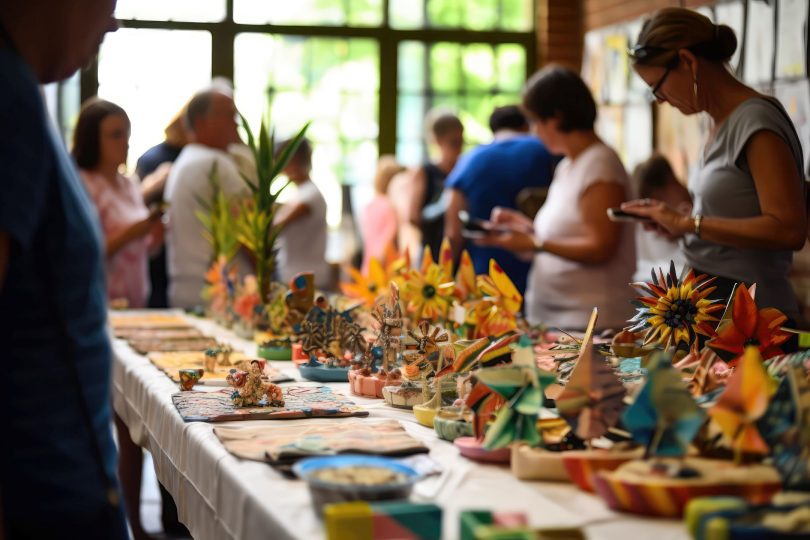Are you thinking about starting a new chapter in a foreign country? It’s an exciting adventure, but it can also feel overwhelming. Moving overseas means more than just packing your bags—it’s about leaving your home country to build a new life in an unfamiliar place.
As a new expat, you’ll face challenges like navigating a new culture, setting up your home, and finding your footing in a foreign community. But with a bit of planning and the right mindset, you can turn this experience into one of the most rewarding journeys of your life.
This article provides practical tips to help make the transition smoother. Read on for the details!
Contents
Work With an International Shipping Company
Getting your belongings to your new country is one of the biggest steps in your relocation. Although it may initially feel overwhelming, working with the right international shipping company can simplify the process and reduce stress.
When researching companies, look for reputable carriers, such as UPakWeShip, that have experience in international shipping. Explore different resources and read customer reviews to gauge their reliability and ensure their pricing is transparent.
Once you identify a few options, reach out to request quotes and compare their services. Pay close attention to essential details like customs regulations, available insurance coverage, and estimated delivery times, as these can greatly impact your experience.
Before packing, list the items you want to bring and prioritize essentials. Shipping costs often depend on size and weight, so think carefully about what you need. Also, remember to share details about any fragile or valuable items with the company to ensure they’re handled properly.
Find the Right Place to Live
Where you choose to live will influence your experience as an expat. Your home should provide comfort and stability, making it easier to adapt to your new surroundings. Whether you rent, buy, or share a space, finding the right fit is essential for creating a comfortable home.
Start by researching neighborhoods in your new city. Think about your priority: is it safety, access to transportation, or being close to work, schools, or shops? Next, look into expat-friendly areas with active communities. If you’re unsure, booking short-term housing will allow you to explore before purchasing an overseas property.
Take the time to match your living space to your lifestyle. Would you thrive in a lively city atmosphere or prefer a peaceful suburban setting? Choosing a location that aligns with your needs will make the transition smoother.
Personalize Your Space
Once your belongings arrive and you’ve secured a place to live, it’s time to make it feel like home. Adding personal touches can bring comfort and help you adjust more easily.
To personalize your space, try adding things that remind you of home. Display family photos, favorite artwork, or meaningful keepsakes to create a sense of familiarity. At the same time, embrace local culture by adding décor or crafts from nearby markets. This blend of old and new can make your home feel special.
Think about functionality, too. Create a cozy corner for relaxing, set up a practical office space, or organize your furniture to suit your lifestyle. Combining these elements will make your space feel welcoming and uniquely yours.
Build a Support Network
Having the right support network can help you feel more connected and settled. But how do you do that when you’re still a stranger to the place?
First, look for expat groups or forums in your area. Many cities have communities where expats share experiences. These groups are a great way to find support and make new friends.
Next, consider expanding your connections beyond expat circles. Building relationships with locals can make your experience more meaningful. So, consider joining local clubs, taking classes, or volunteering to meet new people and learn about the culture.
Most importantly, keep in touch with your loved ones back home. Regular calls or messages can provide comfort and emotional support while you adjust to your new surroundings.
Embrace the Local Culture
Adapting to your new surroundings will help make your new country feel like your second home. One of the best ways to do this is by embracing the local culture and immersing yourself in the community.
Learning a few phrases in the local language is a good place to start. Even basic words and greetings can impact your interactions with locals. People appreciate the effort and are more likely to help you feel included.
Exploring the culture through traditions, food, and local traditions can make the transition easier. Additionally, visit festivals or community events to meet people and learn about their customs. This will help you build connections and make your experience richer.
Everyday tasks like shopping, getting around, or paying bills may work differently in your new country. Adjusting to these changes can feel challenging, but it’s a crucial step toward settling in.
To make it easier, ask questions and watch how locals handle daily activities. Don’t worry about making mistakes—they’re a normal part of learning. Most people are happy to help if you’re polite and show interest.
You can also use technology to make life easier. Apps for translation, maps, and public transport can help you find your way and communicate better. These tools can save time and reduce confusion.
Finally, create a routine to bring a sense of stability. Simple habits like a morning walk or a regular shopping day can make your new environment more familiar and manageable.
Conclusion
Moving abroad and creating a new home is a journey full of challenges and incredible rewards. While the first few months might feel overwhelming, remember that every expat has faced similar hurdles before you. Taking it one step at a time will gradually transform your new location from a foreign place into a proper home. Remember, home isn’t just about the physical space—it’s about the life you build, the connections you make, and the memories you create along the way.








